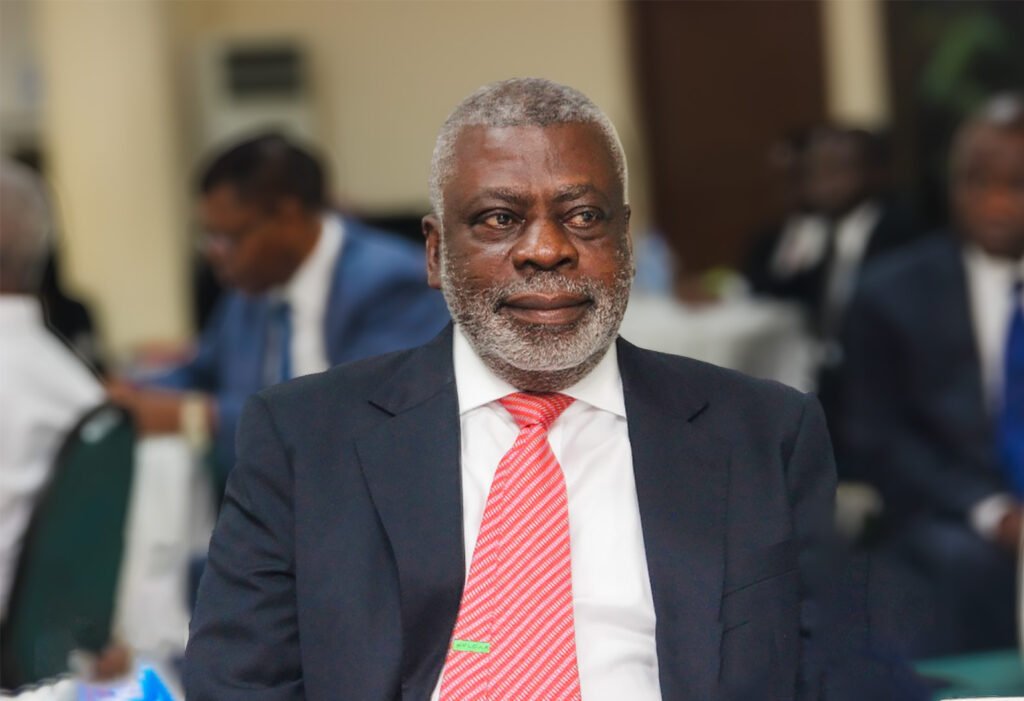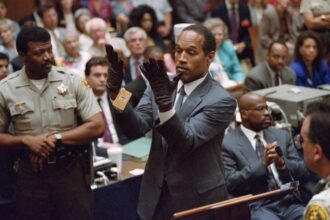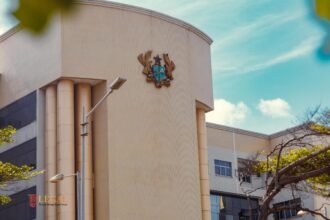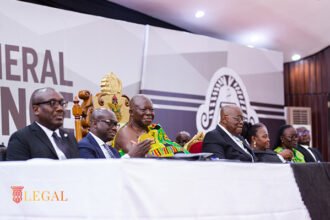
Published February 20, 2025
“lives of great men oft’ remind us, We can make our lives sublime, And departing, leave behind us, Footprints on the sands of time“. Henry W. Longfellow
On January 1, 2025, Ghana’s legal fraternity woke up to the sad news of the passing of Felix Ntrakwah, one of Ghana’s foremost and most successful corporate lawyers, he had taken his last breath the day before and was gone forever.
Alas, the noble profession mourns the loss of a legal giant. Some lawyers maintain that he was the father of corporate and commercial law in Ghana, and arguably, he was. His life at the Bar was marked by an untiring dedication and commitment to corporate and commercial law. This commitment was evident in his involvement in several landmark decisions from Ghana’s Superior Courts—decisions that have significantly shaped corporate and commercial legal practice in the country.
One of the defining moments of Felix Ntrakwah’s illustrious career was his role in the earth-shattering case of PSI Investments Ltd v Central Regional Development Corporation (2012) 1 SCGLR 611.
As the lead counsel for PSI Investments Ltd, a minority shareholder in Twifo Oil Palm Plantations (TOPP),where the Government of Ghana was the majority shareholder, he played a pivotal role in challenging a violation of shareholder rights.
The Regulations of TOPP included a “right of first refusal” or pre-emptive clause, requiring that any shareholder intending to sell their shares must first offer them to existing shareholders before selling to a third party. Despite this provision, the Government of Ghana, acting through the Central Regional Development Corporation (CEDREC), decided to sell approximately 40% of its majority shares. PSI Investments Ltd was informed and expressed its interest in exercising its pre-emptive rights, but the shares were eventually sold to Unilever Ghana Ltd through an open tender process.
Protests from PSI Investments Ltd—arguing that the sale amounted to an unlawful variation of its share rights and a violation of the pre-emptive clause were ignored, leading to a legal battle.
At the High Court, Justice Apau (as he then was) dismissed the plaintiff’s claims, ruling that:
• PSI Investments Ltd had admitted that the sale of the shares to Unilever Ghana Ltd did not amount to a variation of its share rights.
• The company had not been prevented from exercising its pre-emptive rights.
• PSI Investments Ltd had acknowledged during cross-examination that the alleged irregularity could be ratified by a special resolution at a general meeting of TOPP, where CEDREC held enough votes to pass such a resolution.

This Judgement was subsequently upheld by the Court of Appeal.
However, Felix Ntrakwah was not done. Determined to seek finality at the apex court, he pursued the case to the Supreme Court, where the tide turned dramatically. The Supreme Court disagreed with the lower courts and set aside their decisions.
This landmark ruling reinforced key exceptions to the rule in Foss v Harbottle within the Ghanaian corporate legal context, namely:
1. Personal Rights – If the personal rights of an individual shareholder are violated, the rule in Foss v Harbottle will not apply.
2. Fraud on the Minority – The minority shareholders can bring a derivative action to prevent wrongful acts by the majority.
3. Special Procedure – If company regulations require that the transfer of shares follows a specific procedure (as in Regulation 32(a) of TOPP), failure to comply entitles affected shareholders to take legal action.
4. Ultra Vires Acts – If an act exceeds the powers of the Companies Act or a company’s own regulations, a member has the right to sue.
Undoubtedly, this decision was one of his proudest achievements at the Bar—not only because of the sheer industry and legal insight he brought to bear on the case but because it symbolized his unwavering faith in the legal system and corporate justice.
Yet, Felix Ntrakwah’s contributions extended far beyond corporate dispute. He was also a distinguished law lecturer at the Ghana School of Law, where he played a pivotal role in shaping professional legal education. At a time when the Ghana School of Law sought to integrate practical field experience into its curriculum, he was at the forefront, sharing his vast knowledge and real-world expertise in corporate and commercial practice. Many of his students have since looked to his insights and teachings for guidance in their own legal careers.
Indeed, Felix Ntrakwah paid his dues to the legal profession. His life and legacy will continue to inspire generations of corporate and commercial lawyers in Ghana and beyond.
let me end with a quotation from the Bible:“ Then I heard a voice from heaven saying to me, “ Blessed are the dead who die in the Lord from now on “YES” says the Spirit, “that they will rest from their labours, for their deeds will follow them”. (Revelations 14:13)
May his gentle soul rest in peace. Adieu!
Emmanuel K. Owusu-Asare is a legal practitioner and contributing writer











